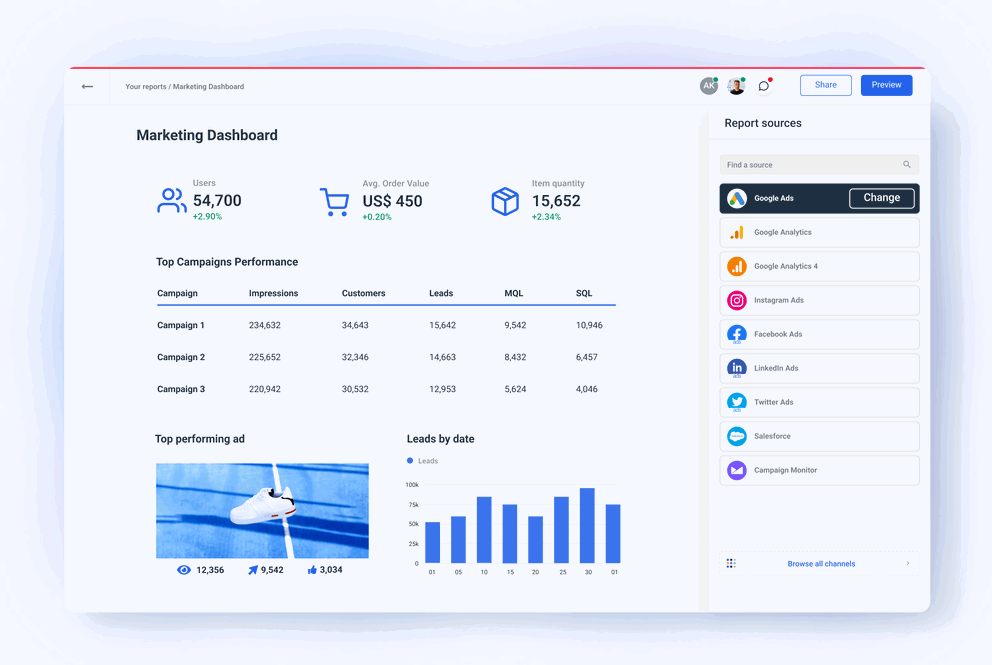
Marketing metrics are crucial for any business to track and analyze the effectiveness of their marketing efforts. By using a dashboard to monitor key metrics, marketers can make data-driven decisions that lead to success. However, it's not just about collecting data – it's about interpreting it and using it to inform strategy and optimize campaigns. In this article, we will explore how to master marketing metrics and effectively utilize your dashboard for data-driven success.
First and foremost, it's important to identify the key performance indicators (KPIs) that align with your marketing goals. These KPIs will vary depending on the specific objectives of your campaigns, whether it's to increase brand awareness, drive website traffic, generate leads, or boost sales. Common marketing metrics to track include website traffic, conversion rate, click-through rate, bounce rate, cost per acquisition, customer lifetime value, and return on investment. By focusing on these KPIs, you can gain valuable insights into the performance of your marketing activities.
Once you have identified your KPIs, the next step is to set up a dashboard to monitor and visualize these metrics. A dashboard provides a centralized hub where you can track all of your key metrics in real-time, allowing you to quickly assess performance and identify areas for improvement. There are several dashboard marketing metrics tools available that offer customizable dashboards, such as Google Analytics, HubSpot, and Tableau. Choose a tool that best fits your needs and allows you to easily monitor your KPIs.
When analyzing your marketing metrics, it's important to look beyond just the numbers. Take the time to understand the story behind the data and identify trends or patterns that can help you make informed decisions. For example, if you notice a sudden increase in website traffic, dig deeper to determine the source of the traffic and whether it resulted in any conversions. By analyzing the context surrounding the metrics, you can gain a more comprehensive understanding of your marketing performance.
Furthermore, it's essential to track your metrics over time to monitor progress and evaluate the impact of your marketing efforts. Set benchmarks and goals for each KPI and regularly assess whether you are meeting, exceeding, or falling short of these targets. By tracking your metrics consistently, you can identify what is working well and what areas need improvement, allowing you to adjust your strategies accordingly.
Another crucial aspect of mastering marketing metrics is to use A/B testing to optimize your campaigns. A/B testing involves creating different versions of a marketing asset (such as an email, landing page, or advertisement) and testing them against each other to determine which one performs better. By measuring the results of these tests using your dashboard metrics, you can make data-driven decisions on what elements resonate with your audience and drive the most conversions.
In addition to A/B testing, consider implementing attribution modeling to understand the customer journey and the touchpoints that lead to conversions. Attribution modeling allows you to allocate credit to different marketing channels based on their impact on the customer's decision-making process. By using your dashboard to analyze attribution data, you can optimize your marketing mix and allocate resources more effectively to channels that drive the highest return on investment.
Lastly, don't forget the importance of data visualization in mastering marketing metrics. A well-designed dashboard should present your metrics in a clear and visually appealing manner, making it easy to interpret and share with stakeholders. Utilize charts, graphs, and tables to highlight trends, correlations, and insights that can inform your marketing strategy. Visualizing your data not only makes it more engaging but also enhances your ability to spot patterns and make data-driven decisions.
In conclusion, mastering marketing metrics is essential for driving success in today's digital landscape. By using a dashboard to monitor key performance indicators, analyzing the data, and leveraging insights to optimize campaigns, marketers can make informed decisions that lead to tangible results. Remember to focus on the KPIs that align with your goals, track metrics consistently, utilize A/B testing and attribution modeling, and visualize your data effectively. With these strategies in place, you can harness the power of data-driven marketing and propel your business towards success.